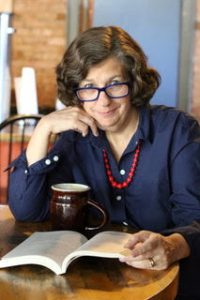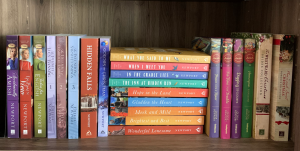 My dad had a heart attack while lifting a suitcase into the trunk of the car in my sister’s driveway. Certainly there are worse circumstances for this particular emergency, and I was grateful Dad could get immediate help and be surrounded by people who loved him.
My dad had a heart attack while lifting a suitcase into the trunk of the car in my sister’s driveway. Certainly there are worse circumstances for this particular emergency, and I was grateful Dad could get immediate help and be surrounded by people who loved him.
We were already worried about him before this happened. Just not his heart. We had no clue about that. But he was showing some signs of mental decline and confusion, and the word Alzheimers had come up more than once. My parents were in the middle of a transition to a living situation that seemed like it would be a good place for both of them should Dad really be headed for dementia. Dad was still able to actively choose this for himself.
So now they took a little detour to the hospital. Yes, it really was a heart attack, and he would need bypass surgery. How many bypasses surgeons would do was undetermined.
One by one, my siblings and I, along with assorted other extended family members, descended on a newly remodeled hospital family waiting room stuffed with comfortable furniture. We took over the joint, many of us spending the night in recliners while others sat in Dad’s room. Memory is fuzzy, but we probably chased off anyone else who tried to use that room by our sheer numbers. We can behave like a territorial pack when we want to. (Or don’t mean to.)
The waiting was torturous. The “what if?” scenarios were frightening. The specter of uncertainty stabbed every intense moment. After the surgery was over, watching Dad in recovery made me want to run down the hall and scream.
My strong father was suffering and saying things like, “If I had known it would hurt this much, I would not have done it.”
The surgery was successful, and we had a few more years to treasure Dad. But I look back on that surgery as a turning point.
He was never the same. A major medical event, I soon learned, can speed the progression of Alzheimers. I picture him at the top of a slide. We all knew the direction was down, but how fast and slick was the slide? The heart surgery seemed to give Dad a shove, and when he grabbed the sides of the slide and climbed up again, he never quite got back to the top.
Even as I boarded a plane to fly back to Colorado, I knew life would not be the same. I would go back to my job, to my family, to my friends, to my writing aspirations, but I would not go back to the security that my dad was there for me.
Now it was my turn to be there for him. For my mom. He would take that ride down the slide, but he didn’t have to do it alone.
Next Monday: Surgeries that Changed My Life, Part 4.




